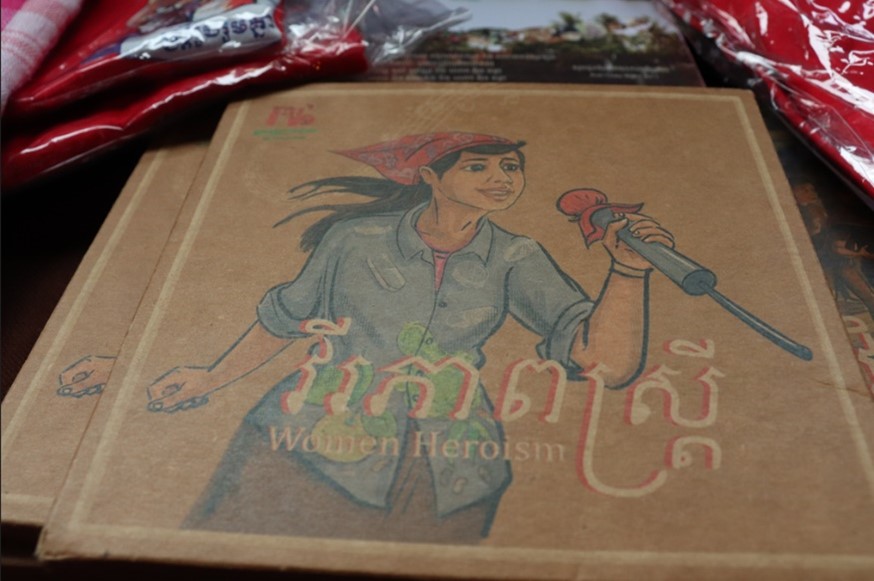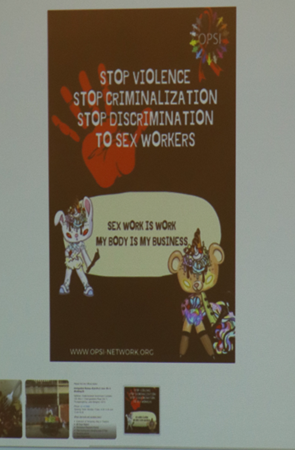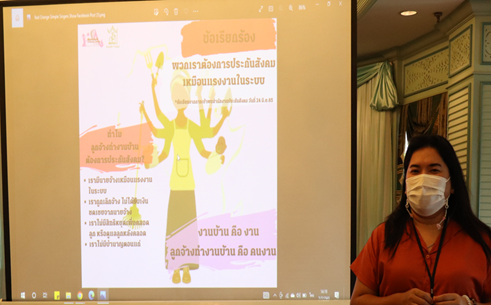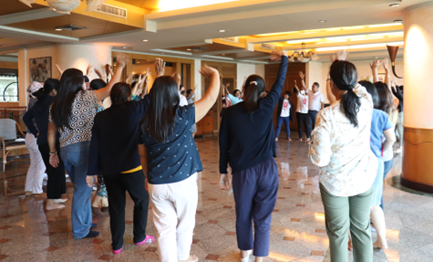The Role of Translation in Social Movement Building
Srishty Anand
In July, the GAATW Secretariat organised a five-day Women Workers Forum (WWF) meeting with participants from Indonesia, Cambodia, Thailand, and India. The women work in different occupations and geographic locations and speak different languages (Hindi, Khmer, Thai, English, Bahasa). To create a space of co-learning and sharing, we onboarded translators and rented translation devices. This blog focusses on the role of translation in activism and social movement building at the level of a transnational collective that has come together to create a vision of social transformation.
 |
Songs recorded by Messenger Band, Cambodia |
The Women Workers Forum, as the name suggests, is a space focused on the political education and mobilisation of women workers located at the intersection of gender, labour, and migration in different countries. It is intended to shift the power and decision-making from CSO actors to women workers, with CSOs involved only as facilitators or catalysts. This is driven by the conviction that women workers are best placed to set their own learning agenda and articulate their vision of change. Continuing with one of GAATW’s focus area of political education of women low-wage workers, this initiative hopes to foster the self-organisation and social awareness of workers and empower them to speak for themselves and engage with the state and other stakeholders to make their demands heard.
WWF challenges women workers’ invisibility in the economy by building their collective voice and organising power. Through workers’ education, WWF will raise their awareness of the ways in which gender inequality in their personal sphere acts as a barrier to their collective empowerment in the public-political sphere. It takes place in several countries in Southeast, South, and West Asia.
 |
Poster designed by OPSI, Indonesia, to raise awareness about sex workers’ rights in Indonesia |
In the spirit of creating a space for such a transnational social movement, GAATW places high value on translation. Within feminist movements, ‘Language translation and language interpretation are political works!’ as articulated by Margo Okazawa-Rey, Co-Founder of the International Women’s Network Against Militarism. During our meeting, it was with the aid of translation that we learnt about tools that workers use to mobilise and organise. Messenger Band, a ‘girl band’ of women garment workers from Cambodia discussed the need of learning to play the guitar to enhance their group performance and the ability to deliver social messages via their songs. They emphasised learning about issues impacting other workers like sex workers, farmers, and factory workers to create their songs and poems. Another workers’ group, JALA-PRT from Indonesia, focusses on training to create posters and videos to challenge the invisibility of domestic workers in public spaces by campaigning on social media platforms. They also encourage workers to keep diaries to share with the collective. During the discussion on documentation, one of the participants said, ‘we have to tell our own story, no one else can do it as it won’t be their reality’. Similarly, some of the groups also link art with organising workers.
 |
Homenet Thailand illustrated the volume of care work done by women |
The current to communicate, listen, and harness each other’s experience was running high. Could this enthusiasm be conveyed from and to five languages? Translation is not limited to speech. There is also an expressive dimension of physical bodies that is not reliant on speech alone. This has been part of feminist movement and solidarity building, what feminist scholar Judith Butler frames as ‘performativity’. At the meeting, this performativity was exhibited not only by the participants but also by the translators. It was found in collective singing or dancing (the meeting included a dance movement therapy workshop) that binds people together not only by words but with synchronised, rhythmic movements. Translation may not have been perfect word-for-word, but the ‘performativity’ of the translators added more subconscious meaning of understanding between participants. The portability of the translation devices allowed participants to look at the speaker and match what they were hearing from the translators to the body language and display of the speaker. This strengthens the communication beyond words and creates a sense of togetherness that slowly, over the five days, evolved into solidarity.
 |
Dance movement therapy workshop during the meeting |
In the universe of international meetings and NGO seminars, there is a tendency to design the agenda in a way that is only suitable for participants who are conversant English speakers (or other dominant languages). Typically, these representatives are senior staff of organisations, such as director or coordinator, by virtue of their education. In this way, use of one dominant language becomes a tool of exclusion of women workers from minorities, rural areas, without formal education, or in low-wage jobs whose voices, needs, and ideas remain unheard or are mediated by the NGO directors/coordinators. As a feminist organisation that strives for women’s equality and empowerment, and values experiential knowledge and ground-up advocacy, GAATW strives to hear from women workers themselves. The use of translation during international meetings may make them more slow, messy, and expensive but is ultimately rewarding.

